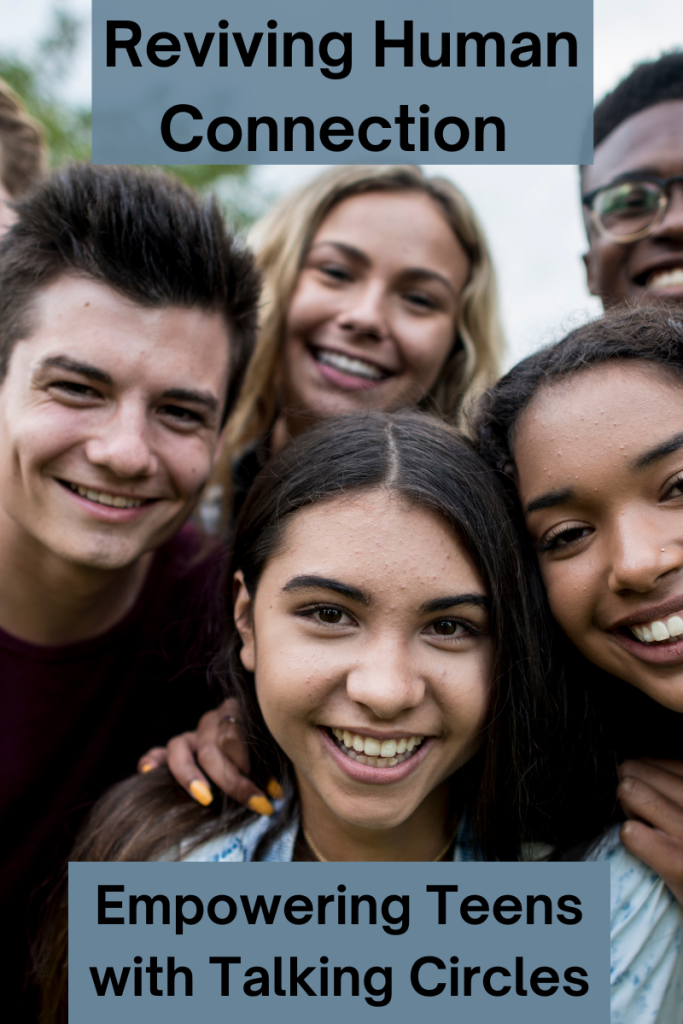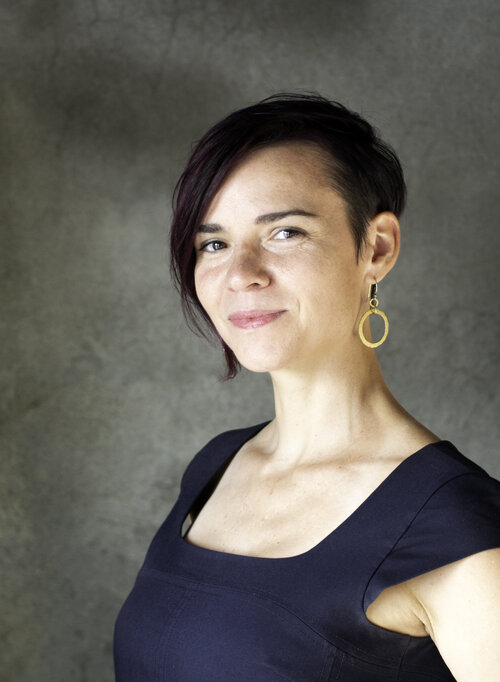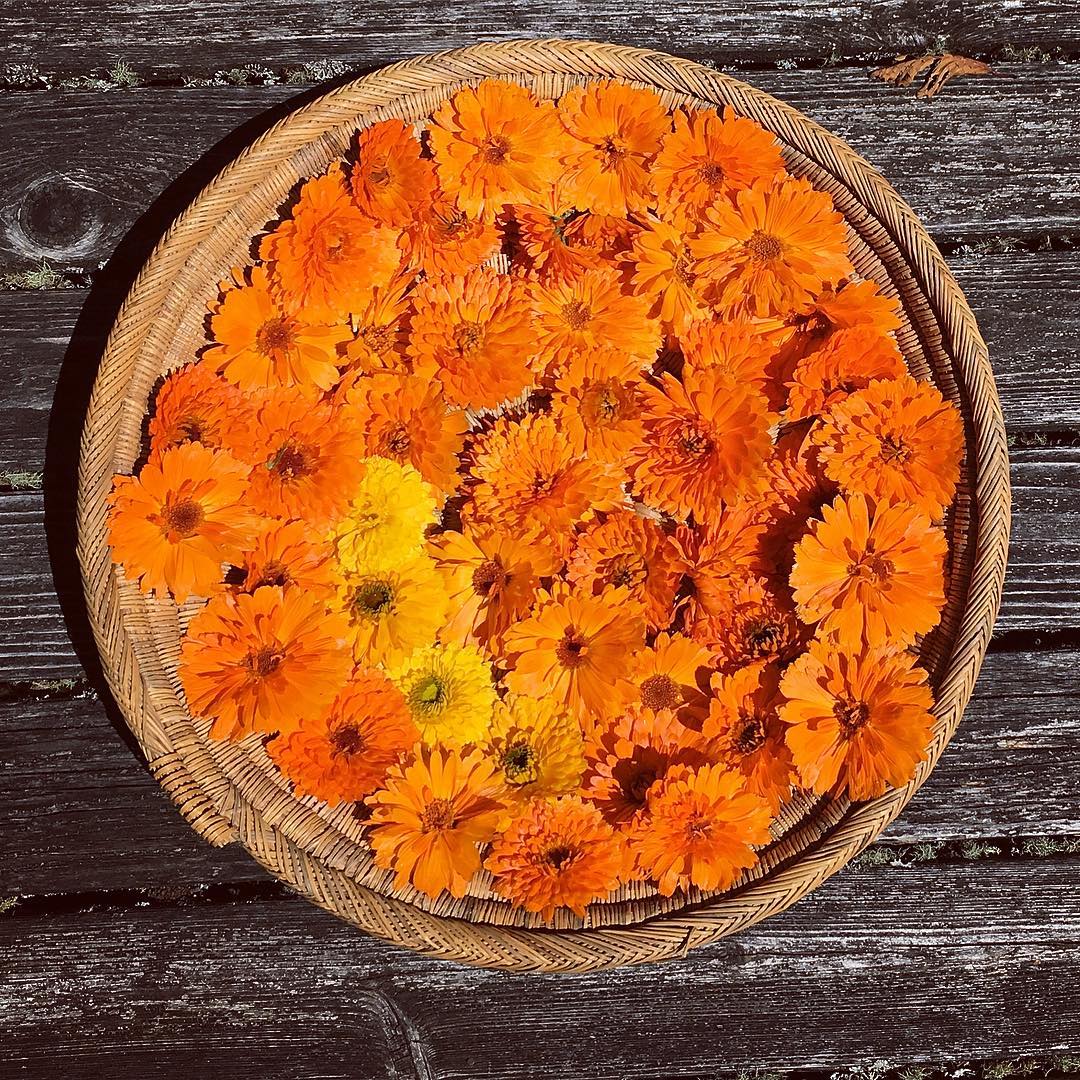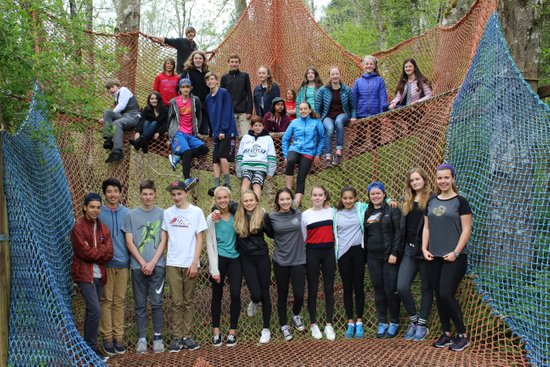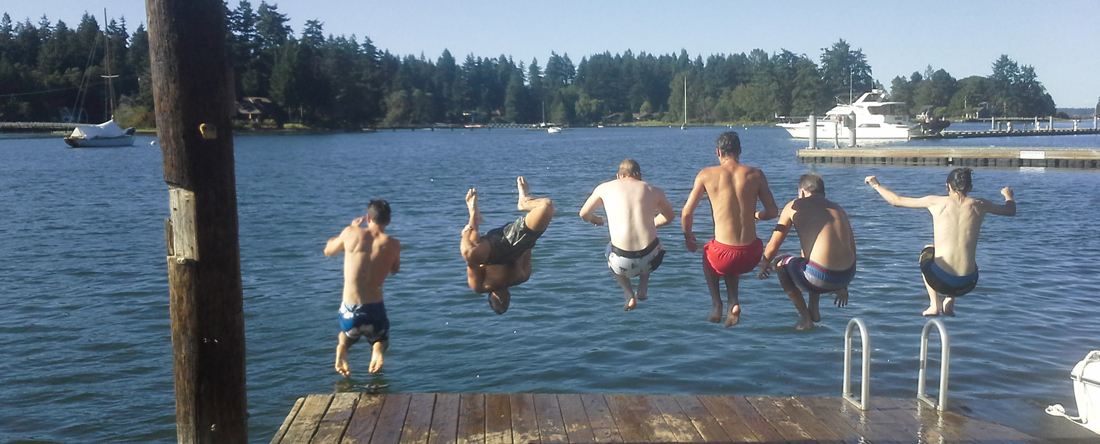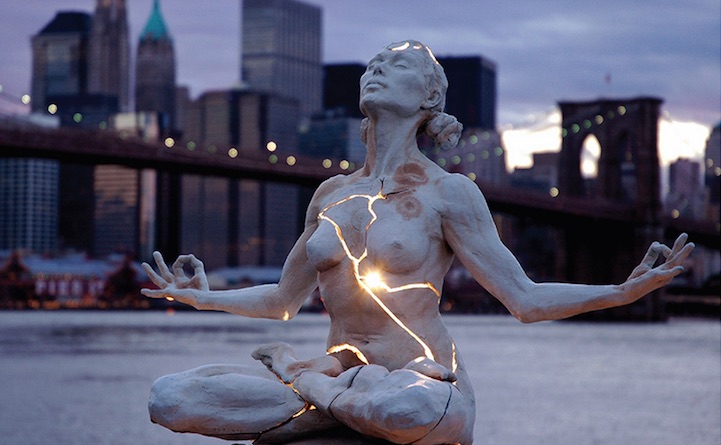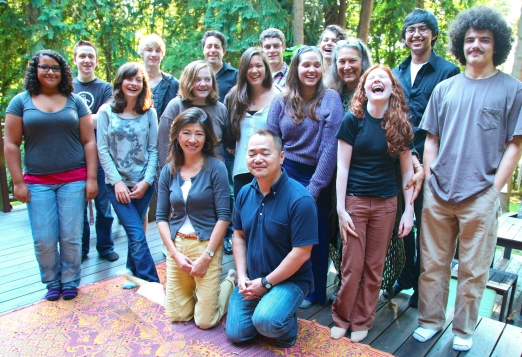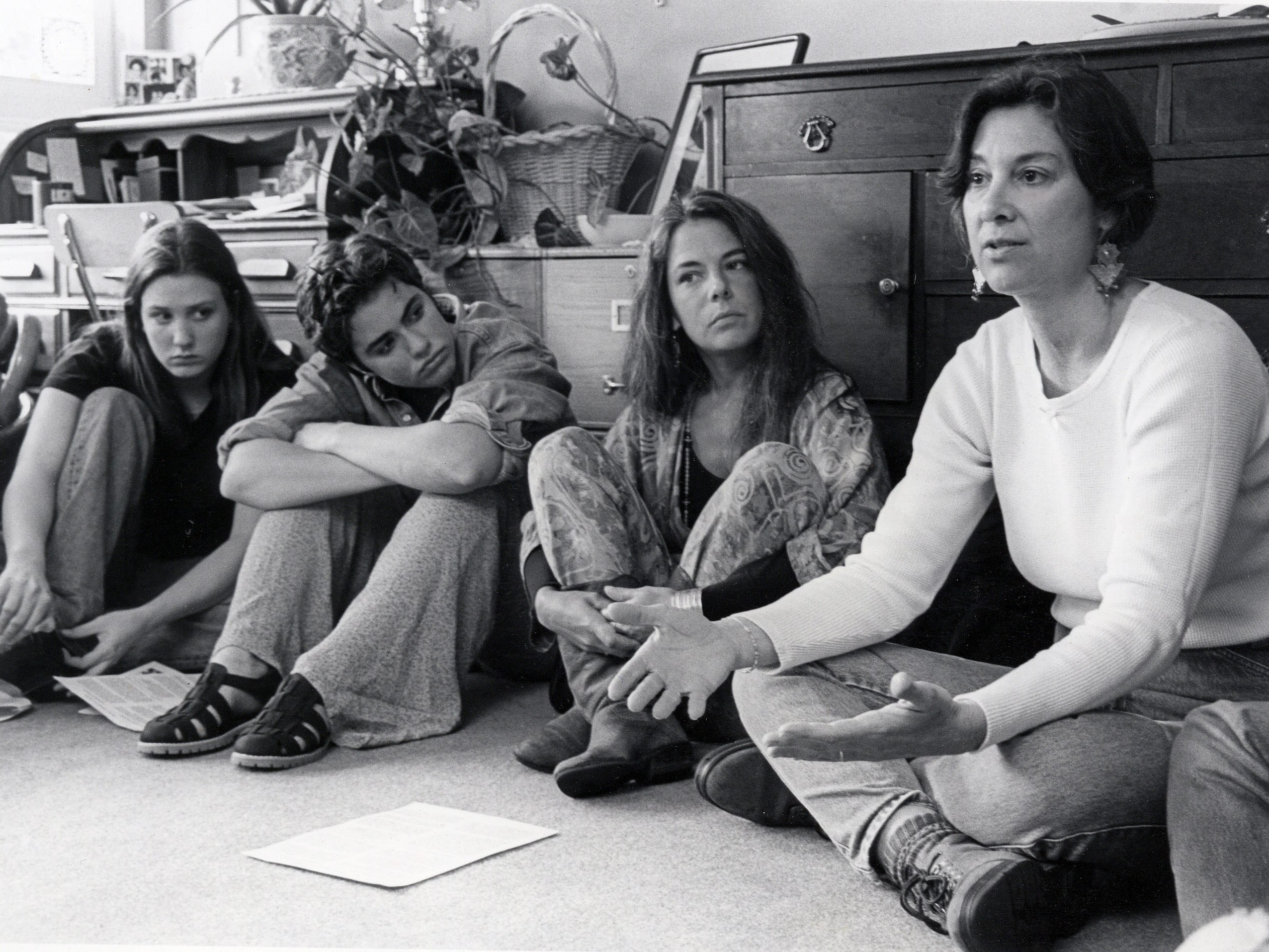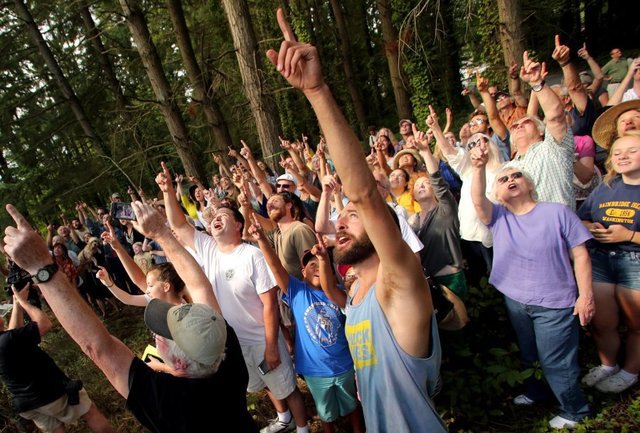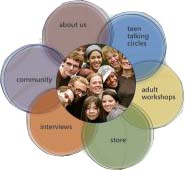The July TTC Blog Post: An Interview with Kate Goldston, by Linda Wolf

The beginning… Photo: Linda Wolf
Hello everyone,
The light has returned, and summer is upon us. Oh, the beauty! The garden is magnificent and life is lifing all around.
We just completed a most powerful TTC Facilitator’s Training and will be taking time to rest up and prepare for our Fall gathering on November 16th in Seattle, with Christen Lien. We say adios to our precious Lilly, as she takes off to parts unknown and hopefully grad school (what a great writer she is and what a delicious time we have had over the past years working together,) and we welcome back our friend, Ali Lockwood, who returns to assist me going forward.
This month, we have a powerful interview with my friend, Kate Goldston. Kate is recovering her health after 21 years as a functional, and then nearly dead, anorexic woman. She is a medical miracle, according to all the doctors. I encourage you to take time with this read, as it will surely open your heart and bring you deep feelings and reminders of the ways women and girls in our world are manipulated to feel that we are not enough, unless we are thin.
Much love and many blessings for a world much more in love than war, linda

Linda & Kate – June 2014
I first met Kate Goldston about 21 years ago, when she was around eleven years old. My daughters, Heather and Genevieve, were friends with her two younger sisters. When I’d go pick them up after play-dates, often Kate would answer the door. I remember her as bright, warm, smart, and open. I remember she looked healthy and robust. My last memory of Kate was on a summer day, when she was maybe 13. She was sitting with her mother, on a beach blanket on the grass near a Lake we all went to. She looked skinny as a rail and sad. I remember I went up to her and asked her how she was, and if she was seeing someone. I don’t remember if I said out loud what I was thinking, but I know I let on that I was worried about her and saw that she looked like she had lost so much weight. I remember her mother seemed angry with me for whatever I said, and Kate looked embarrassed. My attention was unwanted, clearly. After that I felt a distinct coldness towards me and don’t remember connecting with the family again except by chance in the market. I never saw Kate again.
A few months ago, Kate got in touch with me. It had been a good 20 years since that day at the Lake. I knew a little about her family’s issues over the years. They mirrored my own. (Difficult times, divorce, remarriage (her parents to each other – me to Eric.) When Kate got in touch with me, she told me she had just gotten ‘kicked out of Hospice.’ She let me know that she had been struggling with anorexia and bulimia for the past 21 years. She said someone had mentioned my name to her, and she remembered that I was the only one who called it back when it all started. She thought that possibly I would have something to offer her now that she was determined to stop killing herself, and begin the true healing process. She was done with her eating disorders, and resolute that this was her turning point. She said she was following her intuition in every regard, now, including taking her healing process into her own hands. She said she was going through the refeeding processing on her own. I didn’t understand what that meant, but now I do. The refeeding process can kill a recovering anorexic, or anyone who has been starved. The heart, sometimes, can’t take it.
I was blown away that Kate called me. I struggled for about 24 hours with whether or not I wanted to engage with Kate. I knew it would mean 100% of me, and it was going to be an emotional risk. What if I got involved and she didn’t make it? Would it hurt too much, if I let my heart get invested? I woke up in the middle of the night the day after she phoned me, knowing that I had no choice. I had to get involved.
I have to say becoming friends with Kate has been one of the greatest choices I’ve ever made. I love her, and I am committed to helping support her support herself and be her own beloved. I am committed to being there for Kate, through the ups and downs because I sincerely trust she meant it when she said, “I’m never going back, I am only going forward to full health.”

Kate posts her feelings and experience daily on her Facebook page, sometimes twice or three times a day, with dozens of people responding… even those who have been angry with Kate for some of her behavior have turned around to find compassion and friendship.
Kate is changing the culture of Bainbridge Island, where we live. She blogs on her Facebook page every inch and ounce of her experience on this path of health and healing. She has cracked open the hearts of so many people with her truth. She has been a role model for vulnerability and intimacy exposing her truth and the response to her on our island has been incredible. Many have seen Kate around town, walking with her walker (gone now!) and worried about her. Her social calendar is causing her issues at the moment, because she simply cannot continue her self-proclaimed OCD behavior of walking all day to numb herself from the anger and seemingly endless mind chatter that haunts her. She has been changing in the past two months at a pace that is extraordinary and often uncomfortable to herself. Her family does not know how to respond quite yet; as they were certain that when she was in hospice, she was going to die. In fact, her mother did one of the most important things she could have done for Kate, which was to say she couldn’t bear anymore and left her to herself in her Hospice bed. Kate had to come to herself by herself and find herself, alone – it was to be her turning point; her “come to Jesus moment,” as she says.
Since knowing Kate, my own sense of self and process of self-acceptance has been blown open, again…I continue to face the haunting memories of my own eating disorders, and notice when I feel the old urges to overeat or stuff myself so as not to feel the pain. I cannot thank Kate more for being the Great Kate that she is. She is an inspiration and a miracle.
The following interview and photos were done a month ago, mid June. Since then, Kate has gained another ten pounds and made great strides in her mental and physical health. Over the past month, her doctors, who were not at all sure she would make it thought the refeeding process, have given her permission to start doing yoga and weigh lifting. Through community support and many TTC friends, we have fundraised for Kate to attend The Gathering at Hollyhock next week, where she will be meeting many new friends and great contacts for her ongoing process. Ironically enough, she will be carpooling with Vicki Robin, the author of “Blessing the Hands that Feed Us.” Synchronicity and some kind of spiritual guides are taking care of Kate, but most importantly, Kate is taking care of Kate.

Kate Goldston
There is no power equal to a person finally acting on what she cares about.
Linda Wolf: Kate, how are you doing right now?
Kate Goldston: It’s just really scary for me. I’m doing this healing process so publicly. When you’re an inpatient, you go in and they treat you, and afterwards you have to come out and reintegrate yourself into the world. But I’m reintegrating myself into the world and getting better at the same time. I’m learning to be human and to be myself, and to be part of a community. I’m learning more than a hospital could ever teach me as far as personal responsibility and giving and caring are concerned; as far as creating my own space and the family I want to be a part of, the world I want to live in. I feel satisfied with my life right now, but it doesn’t take away the discomfort of watching my legs get bigger, or watching my stomach get distended because of malnutrition. I can ignore it—that’s what I’ve been doing—because I just can’t react to how I look or feel now, I have to accept that I will be uncomfortable and act accordingly. It’s really exciting, though, too, because my life is taking off.
 Yet, I feel very vulnerable, because I’m not hiding anymore! A lot of people get uncomfortable with themselves and hide, and try to mask it. I’m being visible; I’m outside all day in the community. People ask me what’s going on and I tell them — ‘This is what’s going on: I’ve been anorexic for twenty-one years and I’m getting better.’ People are being very receptive to my honesty, and very supportive, in many ways.
Yet, I feel very vulnerable, because I’m not hiding anymore! A lot of people get uncomfortable with themselves and hide, and try to mask it. I’m being visible; I’m outside all day in the community. People ask me what’s going on and I tell them — ‘This is what’s going on: I’ve been anorexic for twenty-one years and I’m getting better.’ People are being very receptive to my honesty, and very supportive, in many ways.
One thing that I love that’s coming back is my sense of humor. Now that everyone on the island knows me, I was telling a friend the other day that I think I should buy a float for the Fourth of July. I’d be like, ‘Hellooo, it’s been twenty-one years and I’m well!’ I thought I shouldn’t have given my walker away because I could have used it in the parade to do tricks.
LW: Getting rid of the walker was a huge win for you.
KG: Yes, and this week was huge for me. I got rid of everything in my apartment that represents illness and disability. I looked at it all and said, ‘See ya, I don’t need you anymore.’
LW: It sounds like you don’t need anorexia anymore.
KG: I don’t. I still have behavioral patterns I need to change, but I’m getting what I need nutritionally. I’m taking care of myself. I’m strong enough to do yoga, now. I see a doctor every three weeks. I see my therapist, who I love. We talk about the discomfort of becoming a woman.
I was going to die…that was my reality for a pretty long time. Being in hospice is pretty much as low as it gets. I was in hospice for about nine months—I left about three months ago. I got myself kicked out of hospice and said ‘I’m getting well.’ And that’s what I’ve done.
LW: What does that mean, being in hospice?
KG: For me, it meant they put me in a facility and were waiting for me to die. They gave me no medical care. They didn’t monitor my labs, my blood work, etc. I don’t know how I feel about hospice anymore after the treatment I experienced. Not being medicated, not being helped, just being left alone to die. I got to the point where I was like, ‘Okay! Today’s the day I’m going to break all the rules and go home.’ I was such an asshole, Linda. They were like ‘You can’t leave the facility’ and I’m like ‘Yes, it’s a beautiful day, and I’m going to go for a walk down to the beach, down the hill.’ So I walked to the beach down the hill and when I came back they were like, ‘You have to go home now.’ I was like ‘Great, it’s been real! That’s exactly what I wanted.’ It was the hardest thing I’ve ever done in my life. I respect people’s end-of-life wishes. If you’re ill and you’re going to pass, you should be left to your own accord, and made comfortable.
When I left hospice, I went home. My parents were furious that I got kicked out of hospice, so I was totally on my own. I had an apartment before I went to hospice, which I kept, so I just went back there. I decided to make up my own plan, using my own knowledge of what needed to happen, and I just moved forward one step after the next.
I had gained a lot of knowledge from my experienced in rehab over the years, but I also had my own inner knowledge. I put together a plan of what I needed to eat, how much I needed to sleep, when I needed to rest, what electrolyte supplements I needed to be on, and I went through the refeeding syndrome by myself.
LW: What is that, the refeeding syndrome?
KG: It’s a rare syndrome that happens during a refeeding process. Your electrolytes go completely wonky as you gain weight, or as you get nutrition in your body after so much malnutrition. You’re at risk of having a heart attack if you don’t eat the right foods at the right time, and I’ve experienced this every time I gained weight in the past, and I knew it was going to happen again. So I was like, ‘all right, I’m going to hang on to whatever God there may be, I’m going to make up a plan, I’m going to figure out what needs to happen to protect my body, and that’s what I’m going to do.’
So, I’ve been going through it. My doctors were like, ‘We cannot believe you’ve done this. It’s a miracle.’ Normally, you need to be in a hospital and have blood work done every day. But I just knew, based on my own knowledge, and I relied on my internal sense of self. I pulled it all together and did it on my own.
LW: It seems to me, that to do something like you’ve done, the motivation has to be really, really strong. What’s the motivation you’ve found to live? Was there a trigger point that caused that shift of, ‘This time, right now, this is it.’
KG: Yes, because I want my friends and family and life back and I want a future and I want children. And I want to not be so bored and selfish. I had reached the goal I had set for myself, and I was still not satisfied, and in fact was going to die.
LW: What was the goal?
KG: 72 pounds.
LW: Why 72 pounds?
KG: That was what I weighed when I hit my growth spurt when I was twelve.
LW: So you wanted to go back to being twelve?
KG: Yeah. Back to that weight. That was what I had told myself twenty-odd years ago. And the reality is I’m scared to die. I’m not ready to die. I had never felt death so close to me. I was crying every night in hospice, and I told the nurses you have to check on me every hour on the hour to make sure I’m breathing. I set my alarm for every hour on the hour. I did not want to die.
LW: So let me get this straight. From the time you were twelve you wanted to stay 72 pounds…and when you reached 72 pounds you didn’t gain nirvana of any sort?
KG: No. And I lost my family. They’re just not in my life. I see my dad, and sometimes I talk to my mom. My sisters are totally out of my life. They won’t be in my life until I get well. They just can’t deal with it anymore.
I wasn’t treating people the way I wanted to be treated. I was stealing, I was occasionally puking, I was walking all day. It was ridiculous. It was constant torture and abuse that didn’t and doesn’t align with my value systems. It’s really, really important to me to live authentically. I want my value systems and my knowledge base to align with my behaviors. This is really important to me. I know how I want to treat people. I believe in a natural, holistic lifestyle, and I love humanity. I’m just starting to get it now….how to live. Truthfully. And honestly. I’m in a very different space than I’ve ever been in my life.
LW: I feel that, Kate, and I sense that for the rest of your life you’ll be helping other people. What would you say to someone who’s still ill, who’s still not yet ready to live?
KG: I would say that illness is a lonely world. It really and truly leaves you feeling void of emotions and connections. It denies you your true purpose in this world. And illness is debilitating. It makes you act in ways that don’t align with what being a good person is. Because being a good person involves being good to yourself and being good to your community and your family and to the people who love you. Treating yourself with such abuse has consequences on multiple different levels. The loneliness that comes with illness is so vast and painful that it inhibits you from being functional and just being happy. I always had this idea that you have to be happy all the time—that if you were well and normal and living everything would be great, you’d have this idyllic life. But it doesn’t work that way. Life brings you ups and downs. But that’s the beauty of life, because in your hardest times you can find inspiration from the good times you’ve had, and you also gain strength and become more of a person through your hardest times. Putting all your cards into the bucket of female idealism is a waste of energy and time, and it really is an incredibly painful experience to exist in that space.
LW: So what could you have told younger Kate that would have been helpful?
KG: I think I would have told her to have faith, and patience, and kindness, and above all gentility, and enter the world prepared to be accepted sometimes and not accepted sometimes —but to open your heart to the community and let your energy be released into the community. Because when you put out the energy you have, you attract people of like energy, who treat you the way you want to be treated. Don’t try to walk into the world manufactured, because when you are not authentic, you attract people into your world that treat you with less than you deserve.
I was destroying my body in attempts to fit into the paradigm of expectations that society had placed on women.

I Googled: Perfect Girls Bodies in the Media… how very unsurprising to see the results.
LW: Where did you get that message?
KG: I developed early and I compared myself to what all other girls looked like, and they were smaller than me, and skinnier than me. And then of course I read the magazines, and watched TV. I thought I was so strong so I didn’t reach out to anybody for help, or guidance, or reassurance that who I was okay as I was. I got deluded as to what my role in this world should be. I got the message that everything that I represented was complete inadequacy. I always thought that my intelligence was a bad thing as a woman. All my friends, to be honest, were kind of ditzy, and flirted with the boys, and hung out with the boys. And I would rather read a book, or do math, or hang out in the woods, have a garden…I just didn’t fit in.
LW: This is classic, right? In order to fit in, you had to pretend you were someone else, and in the process of doing that become disassociated from who you really are.
KG: Exactly. And now I’m just coming back into my own. I’m trying to read again. I’m starting to garden. I’ve met a lot of new people. I’m really out there. Every time I’m scared of where I am I just go for a walk and meet new people. They say, ‘You look wonderful!’ I’m now hearing their compliments as they’re supposed to be taken, as compliments. I’m laughing off comments that are made with inappropriate terminology, like telling me I’m looking full-bodied. There’s a difference between full-bodied and fuller than I have been! When some people say ‘You’re filling out’ I say ‘Thank you. That’s very kind. I’m feeling much better.’ They’re not saying it in the same way as I used to hear it, when I was a girl developing and I felt like I couldn’t handle it. Now I know what people are intending to say.

Sexualization of Adolescent Girls
LW: Do you feel like you were sexualized when you were young?
KG: At ten I had size double-D breasts. I was 5’ 7”. I went from 4’ 7” to 5’ 7” in one year, Linda, and I went from 72 pounds to 152 pounds. If you look at my class photo I was taller than my teacher, I had bigger breasts than my teacher. I was a woman. I started my period at ten. I remember crying myself to sleep, thinking I never wanted to have a period again. I was scared shitless. That was the year we moved to Bainbridge from Brooklyn. So it was complete and utter back-to-back change, extreme change. I didn’t know how to cope. At age twelve I started getting really ill. From eighth grade to age nineteen I was in and out of hospitals. I spent a full year in Children’s Hospital. I was functionally anorexic until age twenty-eight. By the time I was twenty-eight I was sicker than I had ever been, so I went inpatient in New York for three months, came home, got literally sicker than I ever had been in my life, went back to New York for six months, stayed for law school, got even sicker, and had a lot of physical abuse from my community and the world I lived in there. I got attacked by a woman and she broke my jaw in three places, broke all my teeth and cracked my skull, right outside of my apartment in New York. I had to leave law school after two years there because of that. I had my jaw locked and had to be on a liquid diet, and couldn’t sustain my weight. I got hit by a bike twice which broke my pelvis, twice, and cracked my skull and my face. I weighed 100 pounds.
LW: You’ve been through…
KG: Hell.
LW: Hell! How much do you weigh now?
KG: I’d say I’m about 95 pounds. I was 72 three months ago. I know I’ve made progress. I don’t look at the scale when I go to the doctor’s office, because I know after all these years just by how I feel. I’m pretty good at telling intuitively…The feedback and numbers mess with my head. All these charts they give you nowadays don’t take into account stature, bone structure, muscle mass…it just confuses people. My lowest weight was death, and my highest weight will be when I have my period.
LW: Were you ever sexually abused?
KG: Never. But upon reflection, developing really early and walking into this society brings a form of abuse. It was incredibly uncomfortable as a ten year old to get whistles.
LW: I remember, I also developed early, and felt so objectified by older men. I tried to starve myself, as well, but I could never do it. Food numbed the pain and numbed me. So, I would overeat until I was in physical pain, then I would feel my emotions and cry. It’s a different form of eating disorder.

Illness is lonely. “I walk and walk for hours and hours to get away from the noise in my head…”
KG: I found walking. I did make myself throw up for a while, but it didn’t provide the same relief that walking did. It was my moving meditation, my soothing behavior. It was like sucking my thumb. I still have that habit of walking, and it’s going to be the hardest habit for me to break. But, now I can at least sit down for an extended period of time, which I never used to be able to do. I walk to quiet my spirit, because I have a very powerful spirit and it always overwhelms me. I think it’s a gift if you can figure out how to use it—this very powerful energy. It can be angry, it can be happy, it can be excited, it can be anxious…it’s not sadness, so much. Walking draws me away from all those feelings. But, now that I’m back in the community, when I walk I stop to say hi to people, which is wonderful.
I scare myself sometimes because I feel like such a huge presence. But I’m very fragile. I have to be careful with myself because I put all of myself out there, and I fear people will take advantage of that. Men have taken advantage of that. I attract people that emotionally wear on me. I’m learning that I need to protect myself in many ways. Walking with the earphones and hiding in my home and the puking all day and the dying…was me walking away from a world I’m very scared of. I’m learning to attract the right people into my life, people who feed me, physically and spiritually.
LW: Sounds like you are learning about boundaries?
KG: Exactly, I’m learning to form healthy boundaries. I’ve been around a lot of mentally and physically ill people my whole life. I feel comfortable with that population. I’m not afraid of people with diseases. I usually have pretty good boundaries. I was walking home yesterday with one of the sickest alcoholics I’ve ever seen in my life…probably been drinking since he was ten years old. I had to help him home, because he lives in my apartment building. I’ve never talked to him before. You have to be careful of people, to see if they’re dangerous or not. But he’s not dangerous. I got a pretty good read on him. And he said, ‘I’m going to be honest with you, Kate. There’s beer in this bag. I have a really bad drinking problem.’ I said to him, ‘I know that, you don’t have to tell me that, I just hope you’re feeling okay.’ And he sad ‘Yeah, I’m feeling okay, I just went down to get more beer…” I walked him home and helped him put his groceries away. But then this morning, when I saw him, he tried to hug me. And I was like ‘I’m sorry, I can’t do that.’ I’m more than happy to help him get his groceries home, but when touch is involved—that’s a very personal boundary issue. I spoke up to protect myself. I’ve never done that before.

United Nations Facts and Figures – click on this image for the full website
As women, because we are biologically and inherently the vulnerable population, we have to learn how to protect ourselves. We have to figure out our values and how we want to be treated – we need to educate ourselves about our own bodies and our own needs. I think it’s important for a woman to learn about her sexuality and what feels good to her. Sometimes it’s a one-way game, for a lot of people, and that is unfair. I’m a huge proponent of being touched. But it takes time to learn your body and what makes you happy.
LW: What motivated you to get in touch with me after so many years, Kate?
KG: Since I got so ill, I’m realizing I have to form a deep sense of spirituality to get me through this period of time. If I was going to live, and go through this recovery period alone, and put this all together alone, and trust in whatever higher power is out there, I had to trust where my life was being guided, as well. I met someone who mentioned your name, and I hadn’t heard your name in years. And I thought to myself, ‘She is someone I need to have in my life again. She is the only person that called me out on my anorexia when I was young. I think I need to talk to her and tell her where I’m at right now.’ I need people to hear my story, and to respect my story, and help guide me in directions I want to go in my life. I think it’s important for us all to figure out what makes us happy and where to go in this lifetime, and the people that surround you and love you can help you along your path, and teach you things that you need to learn. I felt that you would be one of those people for me. Your value system aligns with my own, and I need those kinds of people in my life.
LW: Thank you. Kate, how do you feel when you hear the word fat?
KG: Fat means fear to me.
LW: How do you feel when you see someone who is fat?
KG: When I was young I would see them as completely out of control. But now I see them as exactly the same as me. We’re hiding behind our illness. We’re the same. I’ve had a few heavier than normal women ask me if I was a ballerina and I said ‘No, I’m an anorexic.’ Fat is a way of cloaking yourself, and skinny is disappearing.
LW: For most of my life, I felt I was too fat. I, too, compared myself constantly.

We are bombarded everywhere, all the time, with the idea that we have to fit into one form. If we can not diet enough, or starve ourselves enough, then there is always liposuction or LipoLaser…This is a booth at our local Bainbridge Farmers Market where I met Kate to do this interview.
KG: There’s a plague that follows women. It’s a number, a box that we’re all supposed to fit into. You’re fucked if you do, you’re fucked if you don’t. No one can ever fit into that box. Some people figure out that they’re okay as they are. They learn how to ignore the messages telling them what they should weigh or be like. Right now I’m in my ignoring mode. When women whittle ourselves down into that box we lose a lot of the life that we want to live. Food is pleasure; it’s part of life. Rest is a necessity. Kindness is a necessity. Spending time with people you love is a necessity. In trying to reach that box, we lose a lot of those things, or become less available to receive those things. You have to ask yourself, is it really worth it? Or do I have less of a life? When you lose weight, you lose life, if you’re already in a healthy range.
Ten percent of the anorexic population will die. The way I see it, I was in that ten percent for a very long time. For twenty-one years. When I said fuck you to hospice I said fuck you to death. I literally told them to fuck off in a very asshole way. I broke all their rules and left and I said dammit, I want to live. Anybody can die at any point in our lives. None of us can know when that will be. We have to walk with the best intentions and live with the best intentions and hope that life will continue. We have to live each day with purpose and hope that tomorrow will be even better. All I know is that all of my doctors have said that I am a medical miracle, and that there’s no reason why I should be living today. And I say, ‘That’s the exact reason why I’m living, my friend.’ If God or whatever higher power has gifted me more time, I’m fully taking advantage of that. I’ve actually never heard of anyone who’s taken themselves through outpatient. It’s so precarious. You have to be monitored 24/7. And I did it with prayer and a good education. I know I can never go back to being as sick I was. If I go back there, I will want to die. That will be me giving up. Before it didn’t matter if I disappeared because there was no one there in my life, but now I’ve created such a large world and a large group of people in my life that care deeply and are counting on me to be around. ‘I can’t let my fans down, Linda!’
LW: Your biggest fan is yourself—but people will be crushed if you’re not around. I will be crushed! Sorry to put that pressure on you—
KG: I feel that pressure, but it’s a good pressure. People count on me to be around and I want to be that kind of person because that means I’m a cool person, that means that people love me, that means that people like the way I’m living, that means that people will treat me the way I want to be treated. And that’s what I want to hang around for. I’ve realized that it does get better and people have the capacity to change. I want to give my life to helping other people. I want to go into schools and talk with the kids. One of the most important people to me right now is a little girl named Posey. I tutor her in math. She was an orphan, adopted from China. She is counting on me and I want to be the best role model for her that I can be.

Ballet Girls & Kate
Later in the day:
A couple hours after I dropped Kate off at her apartment, I noticed a group of ballet dancers, girls from our local high school sitting outside the market on the sidewalk, eating snacks. I saw them as I was putting my grocery bags in the car, thinking I should just go over and ask them some questions that I could include with Kate’s interview. I hesitated, but decided to boldly go up to them and introduce myself, explain the situation and see if they’d be game to talk with me. When I mentioned I had been interviewing Kate, nearly all of the girls knew who I was talking about. Our island is small, and Kate is very visible, as she walks a lot on the main streets. A couple of the girls said every time they saw Kate, they worried and had always wondered about her. Just as I was about to ask my first question, Kate walked out of the door of the market next to us. It was so surprising. Suddenly, I felt a little caught in the act of talking about her, and there she was – I even felt the girls felt uncomfortable or embarrassed. Yet, it was absolutely perfect! I explained to Kate what I was doing and asked her if she would like to introduce herself, herself. Here’s the conversation as it happened next.
Kate: I want you to know, I’m not embarrassed to talk with you. It’s what I want to do; talk with teen girls about what I’ve been through. I’ve lived on Bainbridge since I was ten, and became anorexic at the age of twelve, and just now, at the age of thirty-three I am in recovery. Just three months ago I was in hospice. You’ve probably seen me walking around with a walker?
The Girls: Yeah, my friends and I drove past you the other day! We were just saying how we noticed that you didn’t have it anymore, and how awesome that is.
Yeah, my mom is really worried about you!
Mine, too, and I always wondered who you were and worried about you, too.
Kate: I’m just pulling my life together, now. Being ill for as long as I have been and almost dying was such a waste. I’m now mourning the loss of time. Pouring energy into this basket of being this skinny person has been such a waste. We’re on this earth for more than what we look like. You can’t have children or a family or live in a good community when you are anorexic.
The Girls: What are your plans for the future? How are you going to make up for the time you lost?
Kate: My future?…Find a man, have a baby, and go through menopause!
Girls: (Laughter)
It would be great for you to come talk with our class.
Kate: That’s exactly what I’d like to do in the Fall.

A few days later, Kate, Lisa, Melinda and I, met for lunch. It was the first time in years Kate had eaten during the day, let alone with and in front of others. It was a milestone and we were celebrating. After lunch, we spoke again about the antisocial behaviors Kate exhibited during the sickest recent period of her life, prior to going into Hospice.
KG: I’m going to be very honest with you, I have a lot to face, as I get well. I have done so much damage to myself and others, and made so many bad choices that I don’t even remember all of them, because I was so fucked up. I did most of these things when I was so sick I had to use a walker, and was going insane. I was walking basically all day to avoid thinking… I was stealing to give things to others to have them like me. I was broke, living on $600 a month and I was stealing food that I just puked up, all day long. I house-sat for a woman and I spent all the money on eating and throwing up. The reason I posted on Buy Nothing Bainbridge that I was available to volunteer and to give my time, was my way of repaying and saying I’m sorry to the community that I hurt by my actions in the past. I know I am going to need ongoing help as I go through this process of recovery. After I was arrested and accused of stealing, my family pretty much disowned me. They just couldn’t take it anymore. 21 years of pain. So, to avoid thinking, I kept walking more and more…I would walk for hours, just to fill up my days. Once my family left me I felt I had no friends. I was so ashamed of myself. They put it in the local paper, everybody knew, everybody knew, and I just got sicker and sicker. I got so weak that I couldn’t even leave the house, and that’s when I started setting my alarms so I wouldn’t fall sleep, because I was afraid if I went to sleep I didn’t know if I’d wake up. I wanted things, I want things, nice things, I want nice food, but I’m so embarrassed that I can’t work, because I’m sick…I don’t know what I was thinking back then. I wasn’t thinking. I’ve always gotten what I wanted, you know what I mean? I know that’s embarrassing to say, but everything’s always come so easy to me. I was so good at school, and sports, and blah blah blah…but as I got older, it felt like I wasn’t good at anything. So I was like ‘Well, I know what I can be, I’ll be the skinniest. I’ll be the best at being skinny.’ It was just madness. It was this whole vortex of chaos and darkness. Every behavior fed another behavior. My parents didn’t know how to help me, and I didn’t have insurance that would provide the services I needed to get help. None of the drugs worked. My parents said, ‘You’re behaving so erratically we can’t trust you to be on your own anymore. You have to go into hospice.’ I was there for months. One day, on my birthday, my mother just walked out; she was just done with me. When she walked out of the room and left me, I was faced with myself, alone. My sisters wouldn’t talk with me anymore either. My dad was the only one who stuck with me. But, it was when my mother left that I woke up. It was then I decided I’d had enough. I knew then that what I had to do. And since then, I’ve been on the path of healing myself, facing myself, facing everything, making myself change, even though I am not comfortable and sometimes, it is so hard, you have no idea. It is the hardest thing I have ever done.

LW: Kate, I love you so dearly — you are great. You are a role model, an inspiration, and a heart opener for so many people’s transformation in our community. Your courage and openness has touched hundreds of people, who in turn are opening up publicly and to you and sharing their own eating disorders and understanding, and whatever wisdom they can give you. You are causing people to grow, and accept themselves and others with compassion, transforming judgments into acceptance. You have and are an example of taking ones own life in ones own hands and asking others to simply be with you as you do it. You have allowed people to support you; you have been receptive to everyone’s input –even with those people who are still angry with you, I’ve witnessed you take the high road. It is a true honor to know you and call you a sister and a friend. I, and so many others, deeply love you, Kate. Thank you for being in this world.

the middle…. photo: Linda Wolf
Resources:
ANAD: National Association of Anorexia Nervosa and Associated Disorders
Jean Kilbourne: Killing Us Softly videos
UN Women: Facts and Figures – Ending Violence against Women
I Am A Full Woman video
Feel Free to Feel Free to Share!
